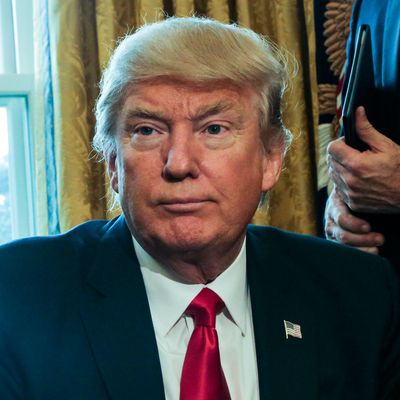
After last night’s defeat in the Ninth Circuit Court of Appeals of his efforts to get his travel ban reinstated, Donald Trump needs to come to grips with a fundamental question: Does he want to win this legal battle? Or does he want to use the frustration of his plans by the courts to score political points and enrage his followers?
That question arises because it is becoming abundantly clear that the way Trump and his closest associates have handled and continue to handle the promulgation and implementation of the travel ban is undermining its legal validity under judicial scrutiny.
Two particular straws in the wind captured in the Ninth Circuit decision are worthy of notice. First, the judges refused to put aside the abundant evidence of religious malice in the record surrounding the travel ban, suggesting such evidence might make an order that is otherwise a legitimate exercise of the president’s national-security powers run afoul of the establishment and equal protection clauses. And second, the judges mocked the ex post facto modification of the order by the White House counsel to exclude permanent U.S. residents as amateurish and legally insufficient.
In retrospect, the sloppy legal work and counterproductive messaging surrounding the order are what is most obviously keeping judges from intervening to save the administration’s bacon. And Trump himself keeps making it worse with tweets attacking the independence of the judiciary —that cannot help his case.
He seems unable to rein himself in. Last night, in the immediate wake of the Ninth Circuit ruling, he tweeted like an excited teenager: “SEE YOU IN COURT, THE SECURITY OF OUR NATION IS AT STAKE!” And this morning, having apparently seen a quote from a legal website about the Ninth Circuit decision, he rushed to share it:
If he had actually read the Lawfare article in question (by Benjamin Wittes) in its entirety, he would have known that while it did chide the judges for not more thoroughly considering the president’s statutory authority over immigration, it also agreed with their decision to leave Judge Robart’s restraining order in place, and concluded that “the incompetent malevolence with which this order was promulgated” is the main reason Trump might not prevail on the merits. He probably should not have drawn attention to it.
Now the administration faces a decision as to whether it will pursue its demand for immediate reinstatement of the travel ban to the Supreme Court, where is is very unlikely to get its way, or instead let the case on the merits go forward in Judge Robart’s court in Seattle. Under the latter scenario, arguments by the government that were insufficient to justify an emergency reinstatement of the travel ban would be a lot stronger in defending its constitutionality. And just as important, Trump’s lawyers would have the time to do some repair work on the factual basis for the executive order that was ignored in the rush to shut down travel.
But that gets us back to the original question: Does Trump care whether he wins in court? Or is he strictly playing to the galleries, consumed not with persuading judges he is right but with blaming them for any future terrorist attacks? Watch Twitter and you will probably find out.






























